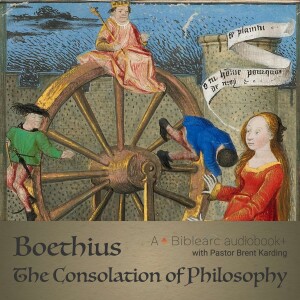
Chapter Summary
Philosophy’s argument is that good is always powerful, and so evil is always weak. She develops this argument from two sides: First, since all people seek happiness, and only the good attain it, they alone have both will and capability to attain what they seek. Secondly, since a person who can accomplish what his nature fits him for is stronger than someone who cannot, a good man who seeks happiness the way Nature has designed, being virtuous, is stronger than the wicked, who seek it piecemeal and thus cannot find it.
She continues to support her argument with several other points: Evil people are weak, paralyzed and unable to obtain the highest goal of reality, either ignorant of the good or deliberately following vice. In fact, wicked people do not exist at all, because to do evil is to abandon one’s nature. Evil people have power only to perform evil, which cannot help you obtain the good, and so is not desirable. But since all power is desirable, power to do evil is no power at all.
About The Consolation of Philosophy
Written in the 6th-century from a prison cell as the author awaits execution for a crime he did not commit, The Consolation of Philosophy is a dialogue between Boethius and a mysterious woman—Lady Philosophy—who helps him rediscover wisdom and virtue.
Subscribe now and begin walking the path of wisdom with us.
 Want to go deeper?
Want to go deeper?
You’re invited to join the companion course that dives deep into each of the five books. There, we’ll explore each chapter, with guided readings, discussion prompts, and study tools to enrich your journey. Enroll today.
No comments yet. Be the first to say something!